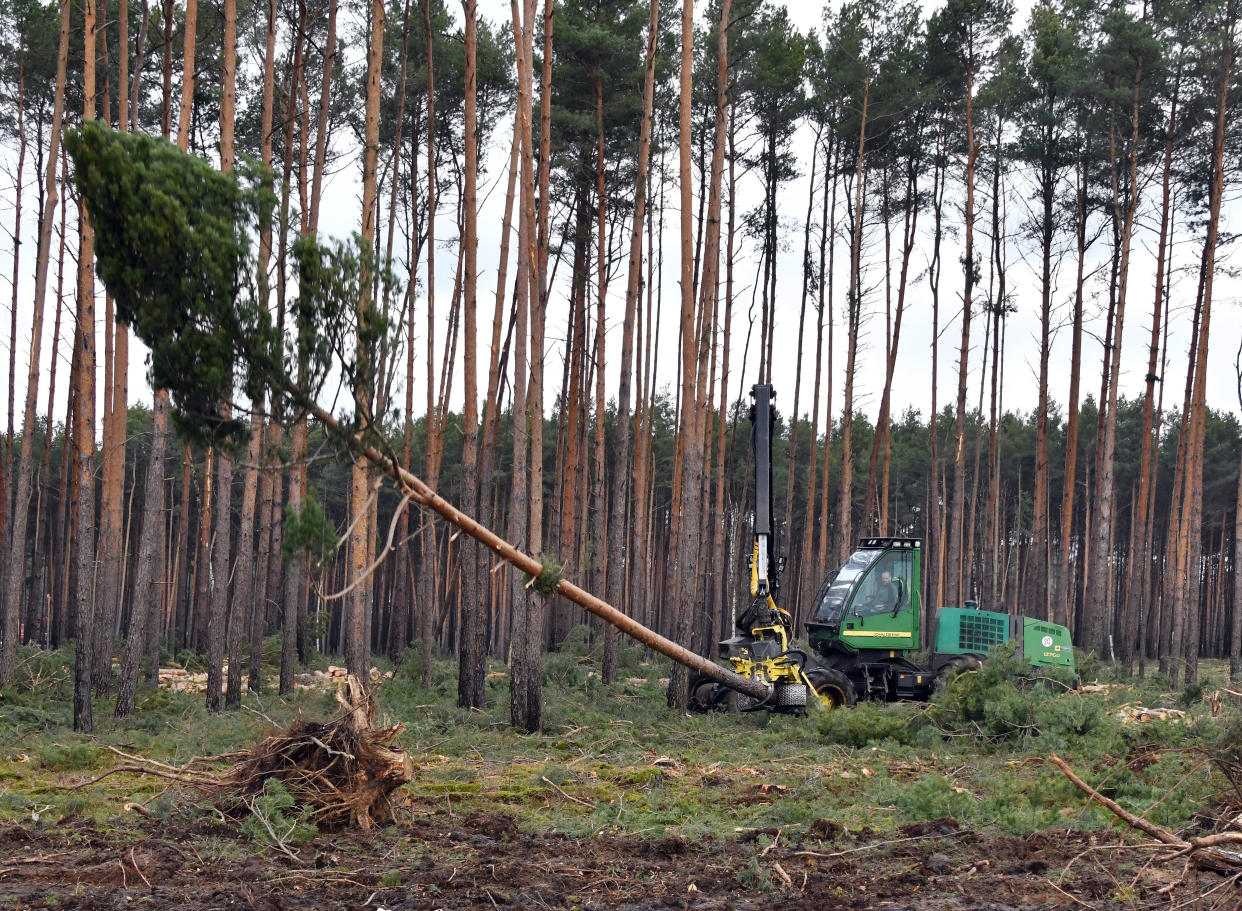Tesla gets court go-ahead to clear forest for German plant

Tesla has narrowly dodged a delay to the construction of its new Gigafactory in Brandenburg, Germany, after a regional court granted approval to clear 90 hectares (222 acres) of forest for the site.
Tree-felling had been on hold since Sunday morning, after environmental organisations Green League and the Association for Landscape Management and Species Protection filed an emergency appeal to stop the clearance, citing threats to forest wildlife and other environmental issues. The higher administrative court of Berlin-Brandenburg ordered an immediate halt to tree-clearing.
Business associations warned earlier this week that it would be “a catastrophic signal from Germany to foreign investors" if the Tesla project failed due to bureaucracy and over-regulation.
"The Tesla factory is a lighthouse project in the true sense of the word," Federal Association of Small and Medium-Sized Businesses president Mario Ohoven said.
READ MORE: German economy minister warns against delays to Tesla plant
Tesla’s Gigafactory will sit on a 300-hectare site, near the community of Grünheide in Brandenburg, the state surrounding Berlin. The electric-car company plans to produce its Model Y and Model 3 at the plant when it opens in 2021, and is targeting 500,000 units annually at full capacity.
Although Tesla is expected to create up to 12,000 much-needed new jobs in the state, there have been protests from the locals, who fear the factory will pollute the environment, and that its massive water usage will lower the ground-water table and cause shortages for local people in the area.
Tesla chief executive Elon Musk has tried to allay their fears about water usage, and pointed out that most of the forest in question was being grown for cardboard.
Tesla’s work is just the latest in a long line of projects that have been stalled, or even brought to a complete halt in Germany over concerns about wildlife protection. The discovery of European hamsters in 2004 at a location where energy giant RWE planned to build a power plant put the brakes on the project for several years. A dredging project on the Elbe river, a main trade waterway in Germany, has been on hold for 12 years due to the presence of rare birds and a special dragonfly.
Tesla is now under time pressure to get the forest cleared before the bird-nesting season and bat-mating season begins at the start of March.

